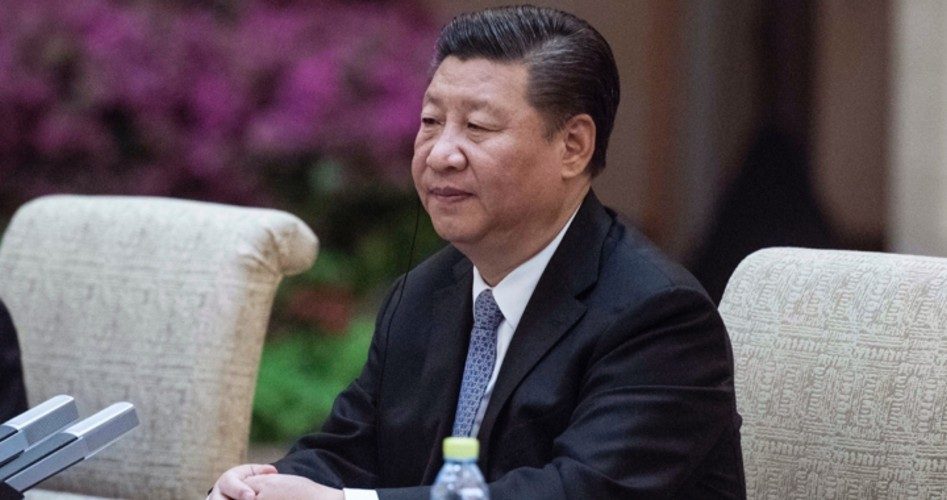
Chinese President Xi Jinping expressed the need for China to be the world leader in issues of global importance. Xi made these remarks to a meeting of the Chinese Communist Party on Saturday.
Xi hinted that a leadership vacuum now exists with America, led by President Trump, withdrawing from pacts such as the Iran Nuclear Deal and the Paris Climate Accord. And who better to fill that void than a barbarous communist government?
Xi said that China should “uphold the protection of the country’s sovereignty, security and development interests, proactively participate in and show the way in reform of the global governance system, creating an even better web of global partnership relationships,” according to a press release issued by the Chinese foreign ministry.
Xi, who took over the reins of China in 2012, has advocated for the communist country to take a bigger role in global issues. He has also been willing to set up Chinese led globalists projects such as the Asian Infrastructure Investment Bank and the One Belt One Road initiative, which looks to create a 21st-century equivalent of the Silk Road trade route.
“We should thoroughly implement the thought of diplomacy of socialism with Chinese characteristics for a new era, continuously facilitate a favorable external environment for realizing the Chinese dream of national rejuvenation and promoting the building of a community with a shared future for humanity,” Xi said, according to Xinhua, the Chinese official news agency .
Under Xi, China looks to strengthen relationships with developing nations, calling them “natural allies.” Coincidentally, developing nations are also much easier to push around and impose one-sided trade deals on.
“We have kept a firm hold on the development trend of China and the world in the new era since the 18th CPC (Communist Party of China) National Congress and made a series of important innovations on external work in theories and practices, thus forming the thought on diplomacy of socialism with Chinese characteristics for a new era,” Xi said, according to Xinhua.
Xi did not address the supposed “trade war” with America, which is supposedly being fomented by President Trump, even though the Chinese have been dealing in underhanded ways for many years. Nor did he mention increased tensions in the South China Sea.
Although Xi speaks of a “new style” of international diplomacy that will result in “win-win” scenarios for all involved, the constant sabre-rattling in the South China Sea and the concerted industrial and military espionage that the Chinese engage in seems to say that it’s still business as usual in the People’s Republic.
U.S. Defense Secretary James Mattis looks to address the South China Sea situation as well as Taiwan and the Korean Peninsula when he visits Beijing this week. He hopes to go into those talks without preconceived notions. “I want to go in right now without basically poisoning the well,” Mattis said. “I’m going there to have a conversation.” But Mattis has not been so diplomatic in the past. He has also recently said, “There are consequences that will continue to come home to roost, so to speak, with China, if they don’t find a way to work more collaboratively with all of the nations who have interest.” Mattis has also scorned China’s tactics of “intimidation and coercion.”
The Trump administration’s “carrot and stick” approach to diplomacy may be working. Just look at Kim Jong-un. But China is not North Korea; it is a much more complex and much more dangerous foe.
The Chinese president talks a good diplomatic game but his actions tell a somewhat different story. Since 2012 he has been slowly consolidating power in China in ways that have not been seen since Mao Tse-tung. In May, the Chinese National People’s Congress “voted” 2,958-2, with three abstentions, to do away with presidential term limits. Any vote that one-sided reeks of authoritarianism. With the result of that vote, Xi might just be the newest “president-for-life” in a long history of such communist dictators.
Photo: AP Images




